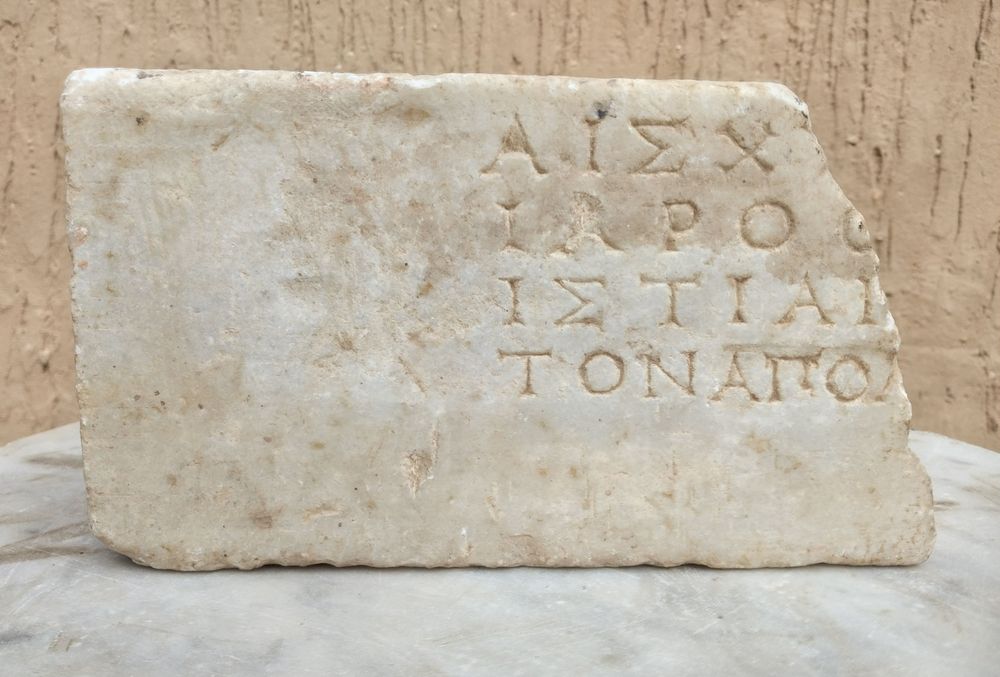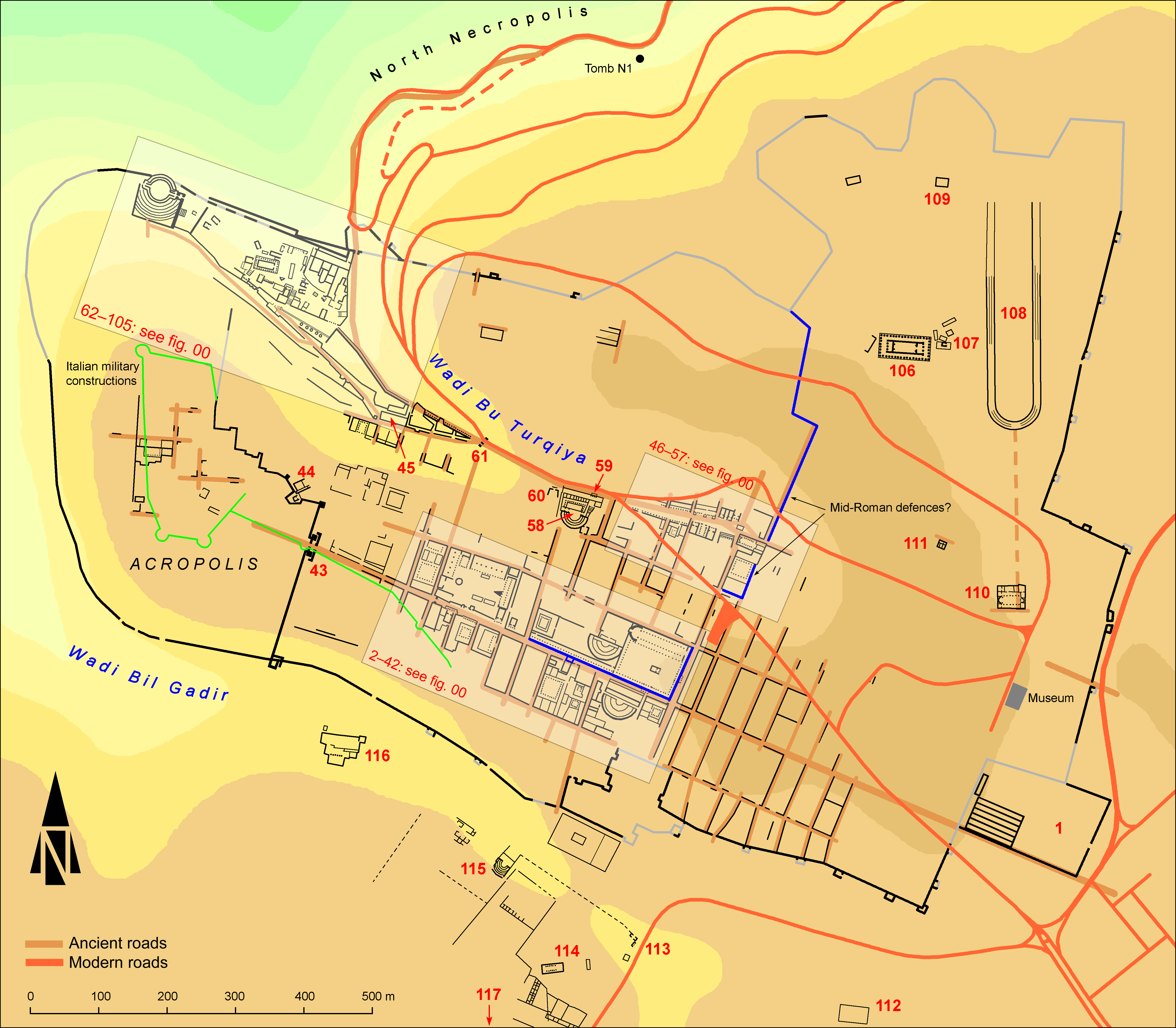EpiDoc XML:
IGCyr0966002
Trismegistos ID:
738476
Source description
Support: Left part of a white marble rectangular panel, broken off at right (w: 0.205 × h: 0.115 × d: 0.062).
Layout: Inscribed on front face in four lines.
Letters: 0.01; widely spaced letters with slight serifs; non-slanting sigma.
Date: Second century BC (lettering).
Findspot: Found before 1935 at Cyrene ➚: exact findspot unrecorded.
Place of origin: Findspot.
Last recorded location: Cyrene Museum, 66. Seen by Pugliese Carratelli in 1960 in Shahat: Cyrene Museum. Seen by Dobias-Lalou in 1979 at the same place.
Text constituted from: Transcription from stone (CDL).
Bibliography
Oliverio , XII.85, whence SECir, 65 (fig. 58); IGCyr 096600 ➚.
Text
Apparatus
French translation
Aiskhylos en tant que hiarothyte [a consacré] à Histia (scil. l'image d'?) Apollon.
English translation
Aischylos acting as a hiarothytas [dedicated ] to Histia (scil. the image of?) Apollo.
Italian translation
Aischylos quando era hiarothytas [ha dedicato ] a Histia (scil. l'immagine di?) Apollo.
Commentary
Pugliese Carratelli published the inscription from Oliverio's papers after having observed it himself. He supposed the stone to have been cut off above, which C. Dobias-Lalou does not confirm.
At line 2, we probably have a form related to the religious office of ἱαροθύτας. Up to now, only the noun of action ἱαροθυσία is attested at Cyrene. On behalf of other dedications made by men acting as officers, the present or aorist participle of ἱαροθυτέω would be plausible.
Lines 3 and 4 are too incomplete to allow a clear interpretation of the whole. Four possibilities may be foreseen: 1) a dedication made by Aischylos to the goddess Histia of an image of Apollo; 2) a dedication to the same goddess of the statue of a man whose name includes Apollo as first stem; or 3) of the statue of a man with a short name cut at line 3 and a father's name beginning with Apoll-; 4) a second dedicant named Histiaios with a short father's name dedicating jointly with Aischylos an image of Apollo.
In support of hypothesis 1 is a series of dedication to Demeter of images of other gods (IRCyr2020 C.497, IRCyr2020 C.498, IRCyr2020 C.456). However, ΑΠΟΛ is cut in a rasura, which is puzzling for the main topic of the inscription. The same objection may be presented against hypothesis 4. Having to correct an error would be more natural if it was a personal name, which would fit hypothesis 3. On the other hand, the article at line 4, which is not common before the first name, seems to depreciate hypothesis 2. All things considered, we choose to translate hypothesis 1, which however should remain uncertain.
CC BY-NC-SA 4.0 Deed Attribution-NonCommercial-ShareAlike 4.0 International License.
All citation, reuse or distribution of this work must contain a link back to DOI: https://doi.org/10.60760/unibo/igcyrgvcyr2 and the filename (IGCyr000000 or GVCyr000), as well as the year of consultation.

